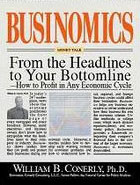Seth Godin has a stunningly useful commentary on books, libraries and librarians.
“The librarian isn’t a clerk who happens to work at a library. A librarian is a data hound, a guide, a sherpa and a teacher. The librarian is the interface between reams of data and the untrained but motivated user.”
I learned this truth too late in life. The librarian is not the keeper of the book warehouse, but is a knowledge guide. Let me take it one step further and apply Seth’s concept to education.
In the medieval university, books were scarce and expensive, far too scarce to expect every student to buy a half dozen textbooks. So professors lectured. It was a cost-effective way to transmit information.
Today, most professors still lecture. Not just in seminars covering rare information, but in basic courses taught in every college in the world: introduction to economics, first year chemistry, Calculus I, etc. Think about that. There are books covering everything said in the lectures. There are videos of great professors lecturing on the common topics. It’s a colossal waste of time for every professor to lecture.
Most anything can be learned by a dedicated person studying on his own. However, most of us do better with some structure, and efficiency calls for a guide to the material and a person to answer questions when we get stuck. That should be the role of the modern professor. Design the body of material to be studied for a particular course. Recommend reading, videos, exercises, problems and projects that will help students. Be available to help students who get stuck. Ask stimulating questions. Promote discussion. Evaluate student performance, and advise on how much progress is being made. The teacher becomes a consultant.
One great teacher, Soo Bong Chae, opened a class I was in with these words: “I am a teacher, but I do not teach. You learn.”
It’s time for education to step out of the medieval era and heed Seth Godin’s words.
- Bulenox: Get 45% to 91% OFF ... Use Discount Code: UNO
- Risk Our Money Not Yours | Get 50% to 90% OFF ... Use Discount Code: MMBVBKSM
Disclaimer: This page contains affiliate links. If you choose to make a purchase after clicking a link, we may receive a commission at no additional cost to you. Thank you for your support!




Leave a Reply